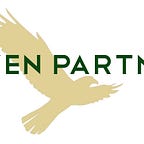15 Important Questions to Ask When Interviewing a COO — Cowen Partners
The chief operating officer of a company is a senior executive level position typically second in command to the chief executive officer. A COO is responsible for managing the day-to-day operations of your business and works to execute the company’s overall business plan. In most cases, the COO handles the internal affairs of the business so the CEO can focus on external communications.
The role of COO is meant to complement the skillset and responsibilities of the CEO. The person who fills this role should be highly experienced, with at least 15 years of experience within the field. This time spent climbing the corporate ladder has taught them everything they need to know about managing the administrative and operational functions of your business.
Since the COO works so closely with the CEO, determining which candidate fills the role is vitally important to your company. You need someone who can not only excel as the company’s chief operating officer but who you can easily work with on a day-to-day basis. To help you make the right choice, we’ve compiled 15 important questions you should ask when interviewing a COO.
General COO Interview Questions
A good COO candidate will have taken the time to research your company and fully understand what you do. If you receive a vague or general answer to this question, that’s a sign the candidate isn’t fully prepared for the interview.
You want to make sure the communication and decision-making style of the COO aligns with how your company works.
The COO is going to managing your internal teams so you want to make sure this person knows how to motivate employees to get the work done and hit all of your milestones.
A COO is going to be giving a lot of feedback to your employees, and you will have to give feedback to the COO. Listen carefully to the candidate’s feedback strategy to make sure it jives well with your company culture.
This question is meant to test the COO candidate to see how they think on their feet. It also will give you a sense of their creativity as well as their personality.
Culture Fit Questions
You want to make sure the COO you choose will fit your company. Listen to what their ideal idea of company culture is to determine if your ideas align.
Gauge how the COO thinks they will mesh with your company culture and why. It’ll give you insight into their impression of your office as well as how they see themselves fitting into the workflow.
If the COO’s personal goals don’t align with the company, they probably won’t be planning to stick around too long. Make sure the goals align so you can have confidence in the COO’s commitment to the business.
The COO and CEO work very closely together. The two need to be on the same page about how the relationship will work. This question will give you an idea of what the COO expects from the company’s CEO.
Disagreements are inevitable in any business setting, so you need to understand how the COO handles office disputes. Pay attention to what caused the disagreement in the story as well as how the two resolved the matter.
COO Experience and Background Questions
A COO could have a perfectly reasonable explanation for jumping companies. Listen to the explanation and use that to determine whether you think this candidate will stick with your company long-term.
You want to make sure your COO can handle any challenge that comes their way. If the COO you’re interviewing hasn’t faced any big challenges, it’s best to keep looking. You want someone with the experience and fortitude to handle any big issues that may arise.
This is a really interesting question that tells you two things. One, it gives you insight into how much the COO candidate really knows about your company, and two, it gives you an example of what kind of ideas you can expect from this COO.
A COO should have certain standards and measurements in place that they use to track progress within departments and the overall company. Listen to the types of metrics used and determine if they’re the best ones for your business.
You want to know what programs and metrics the COO relies on when preparing forecasting reports. Consider how the COO’s method will impact and work for your company.
You might be interested in these other posts about executive recruiting:
Originally published at https://cowenpartners.com on November 18, 2020.
